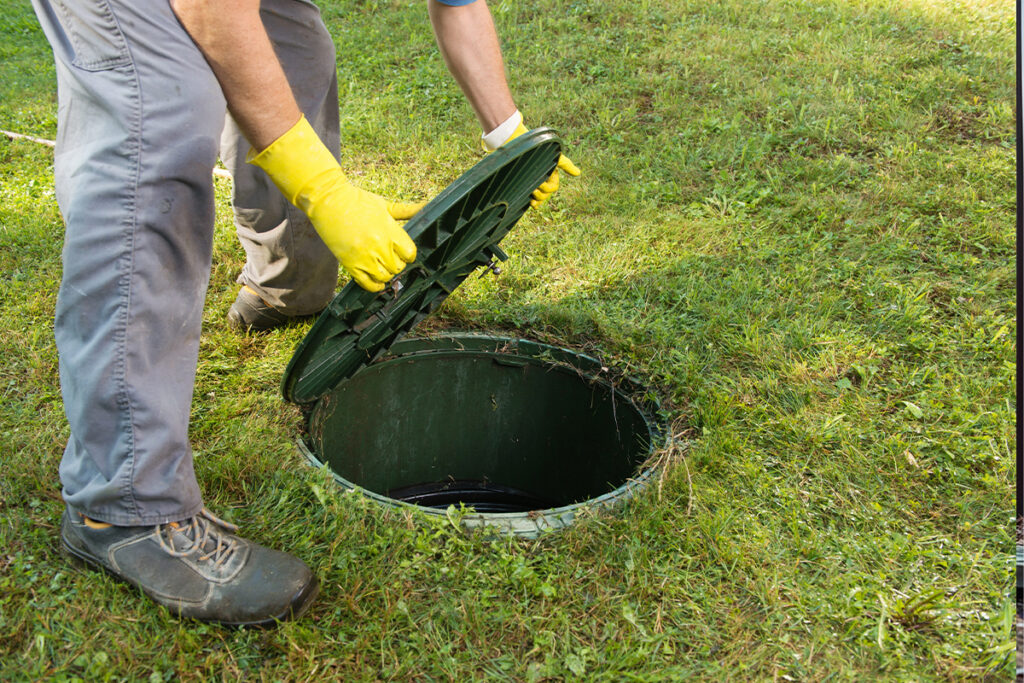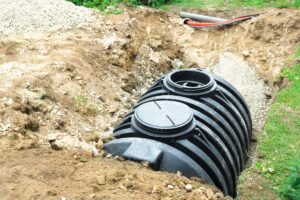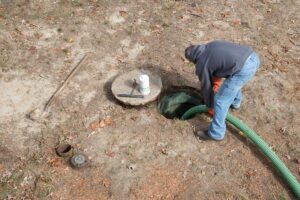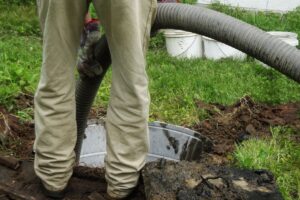In Eugene, Florence, Salem, and most of the regions across Oregon, septic tank pumping and any repair services are almost a usual thing, especially for those homeowners who rely on the septic system for their whole plumbing needs. These systems can be considered fairly stable and do not demand substantial input; at the same time, there is a clear issue of ambiguity of how they work – and how they are maintained. As a result, Best Septic Tank Pumping has offered this blog containing some of the frequently asked questions by people concerning septic tanks for your benefit as a homeowner.
What are the basics of septic tanks?
According to the top septic tank pumping and repair experts in Florence, a septic system is a self-contained wastewater treatment system designed for properties that lack access to municipal sewer lines. These systems are prevalent throughout the United States, particularly in rural and suburban areas. The typical septic system consists of two main components:
Septic tank:
A large, watertight container made of concrete, fiberglass, or steel. The septic tank serves as a primary treatment chamber, allowing wastewater from the home to settle. Solids settle at the bottom of the tank, forming sludge, while lighter materials like oils and fats float to the top, forming a scum layer. Bacteria in the tank naturally break down organic matter within the wastewater.
Drainfield (leach field):
A network of perforated pipes buried in a specific depth and gravel aggregate. The partially treated wastewater (effluent) from the septic tank flows into the drainfield, where it is distributed through the pipes and slowly absorbed into the surrounding soil. The soil further treats and filters the effluent before it reaches the groundwater table.
What is the most common septic tank?
Concrete tanks are the most commonly installed type of tank in the United States because of their hardness and economic worth. Fiberglass and steel septic tanks are also available and give satisfactory results, but they have their individual pros and cons. Leading septic tank pumping andrepair experts in Florence reveal that the type of septic tank material can be affected by factors such as local requirements, the porosity of the soil, and cost. Seek the services of a licensed septic professional to get the best advice when it comes to septic tank solution for your compound.
Common Septic System Questions Answered
What is a septic system, and how does it work?
At its core, a septic system is a self-contained onsite wastewater treatment facility. This means it processes your home’s wastewater without connecting to a municipal sewer line. Septic systems are prevalent throughout the United States, particularly in rural and suburban areas where homes are spread out and connection to a centralized sewer system is impractical.
The septic system fulfills a vital role by treating wastewater before it reaches the environment. Top septic tank pumping companies in Salem reveal that while it doesn’t achieve the same level of treatment as a municipal wastewater treatment plant, a properly functioning septic system plays a crucial role in protecting public health and safeguarding groundwater resources.
Here’s a simplified overview of the septic system’s wastewater treatment process:
- Domestic sewage water from households (toilets, sinks, showers, and other installations) enters the septic tank.
- This material, termed sludge, accumulates at the bottom of the tank in a layer of solids.
- Oils and fats rise to the top of the water, and for this reason, the scum layer is formed.
- Different microorganisms, such as bacteria in the tank, digest the organic material from the wastewater.
- Septage flows out of the septic tank into the drainfield; this has been partially treated.
- Effluent is discharged through specially designed slot outlets on perforated pipes that are laid on the drain field.
- Water effluent passes through the different layers of the soil and, at the same time, receives further treatment.
- Treated sewage water finally discharges to the groundwater level.
One must also consider that, for the septic system to work properly, the bacteria in the tank have to be in harmonious proportions. Do not add scorching chemicals or high-grease types that are risky to these helpful bacteria in the gut.
How often should I pump my septic tank?
Routine septic tank pumping is recommended every 3-5 years, depending on the tank size. However, you should seek the services of a licensed professional to inspect your septic system at least every 1-2 years to recommend the right pumping frequencies for you. At Best Septic Tank Pumping, our team provides detailed septic inspections to help you determine if there is any problem with your septic system. Feel free to contact us at (541) 236-5342.
What are the signs that my septic system is failing?
Some signs could include slow-moving drains, unpleasant smells around your home, moist patches or puddles in your lawn, and thick grass above the area where the drain field is located. Leading septic tank pumping, inspection, and repair companies in Eugene, if there is a sewage backup inside your home, bizarre gurgling noises in the pipes, or high levels of nitrate or bacteria in the water, then yes. If you experience these signs, immediately contact a septic system expert at Best Septic Tank Pumping.
What should I avoid putting into my septic system?
- Grease, oil, and fat: These substances can solidify and clog your drain pipes.
- Coffee grounds: Coffee grounds do not break down easily and can contribute to sludge buildup in your septic tank.
- Food scraps: While some organic matter is okay, large food scraps can clog your drain lines and disrupt the natural balance of bacteria within the tank.
- Non-biodegradable materials: Items like cigarette butts, dental floss, feminine hygiene products, and disposable wipes do not break down in the septic system and can cause clogs.
- Harsh chemicals: Drain cleaners, bleach, and other harsh chemicals can kill the beneficial bacteria essential for proper wastewater treatment in your septic tank.
- Prescription medications: Many medications are not designed to break down in septic systems and could potentially contaminate the groundwater. Always dispose of medications according to the manufacturer’s instructions.
How can I prolong the life of my septic system?
By adopting some simple practices, you can significantly extend the lifespan of your septic system and prevent costly repairs:
Space out laundry loads:
Do not attempt to do all the laundry for the week in one day, but rather spread it throughout the week. Top septic tank companies in Eugene reveal that this minimizes overloading the septic system with excess wastewater that could prove disastrous to the whole system.
Conserve water:
You should also reduce water consumption in your home by using efficient fixtures, such as checking for leaking faucets, reducing showering time, and using efficient washers in appliances.
Use garbage disposal sparingly:
In the case of garbage disposals, it can increase the solids that go into your septic tank. Only apply it occasionally, and never scrape considerable quantities of food into the drain.
Have your septic system inspected regularly:
Having the septic tank pumped by a licensed specialist such as Best Septic Tank Pumping checked periodically will help one notice such things early enough before they become major issues.
Pump your septic tank on a recommended schedule:
Hence, adhering to a standard pumping schedule that will be determined according to the client’s needs helps meet the expected standards for the system and also helps avoid cases where solids flow over the drainfield.
What should I do if my septic system backs up?
If you experience a septic system backup, it is crucial to take immediate action. The first step is to minimize water usage in your home. This will help prevent further strain on your already overloaded septic system.
Furthermore, don’t attempt to fix a septic system backup yourself. For immediate assistance, contact a licensed professional like Best Septic Tank Pumping. We will diagnose the problem and provide the necessary repairs to restore your system’s functionality.
Are septic systems environmentally friendly?
Septic systems can be an environmentally friendly wastewater treatment method when properly maintained. Leading septic tank repair, pumping, and inspection contractors in Salem reveal that the normal decomposition of the organic matter in the septic tank and the seepage through the drainfield help to reduce the number of pollutants that get into the water table. However, a failing septic system leads to pollution of water sources with negative impacts on the health and environment of people and other living organisms.
How does the weather affect my septic system?
Weather factors affect your septic system in various ways. Rains can fill the surrounding soil of the drainfield with water, thus reducing the capability of the drainfield to absorb effluent. Long durations without rain can also affect the behavior of the septic tank system since the sludge layer may be set like concrete. Although such weather conditions may not be problematic for your septic system point and click immediately, they signal that your system should be checked for regular servicing as changing conditions necessitate.
Is it necessary to have my septic system inspected?
Leading septic tank pumping companies in Florence reveal that regularly inspecting your septic system by a licensed professional is vital for its proper maintenance and longevity. Here’s why inspections are crucial:
- Such inspections will help detect problems that may likely occur in the future and will be very expensive to resolve.
- The inspection services enable the septic system to be serviced correctly, for instance, by pumping at a recommended interval.
- In certain places, it is even the law that septic systems must be inspected to guarantee proper working and preservation of the environment.
WE ARE READY 24 HOURS TO HELP YOU.
Contact Best Septic Tank Professionals
For all your septic tank needs, Best Septic Tank Pumping is here to help. Our team of licensed and experienced professionals provides a comprehensive range of septic services, including:
- Septic tank pumping: We utilize state-of-the-art equipment to efficiently pump your septic tank and dispose of waste in an environmentally responsible manner.
- Septic system inspections: Our thorough inspections identify potential problems and provide recommendations to maintain the health of your septic system.
- Septic system repairs: We offer a comprehensive range of repair services to address any problems with your septic tank or drainfield.
- Grease trap pumping (for Salem and Florence): We provide grease trap pumping services to ensure proper grease disposal for restaurants and other commercial establishments.
Final Takeaway
Understanding frequently asked questions about septic tanks helps you gain knowledge that will enhance the efficiency of your specific septic tank. Best Septic Tank Pumping is focused on offering precise septic tank pumping, inspection, and repair services to the residents of Eugene, Florence, Salem, and surrounding areas. Our company’s mission is to free you from problems with your septic system and its damages or negative impact on the environment. It is important to ensure regular septic maintenance is carried out so that you can reduce the tendency of failure and environmental pollution.
We are a fully staffed company with only licensed and experienced professionals to provide all of our septic service needs, which include septic tank pumping, inspections, and repairs. We are very proud to operate according to strictly professional safety standards and concern for the environment. Besides customer satisfaction, our fundamental beliefs of reliability and organizational transparency give direction and substance to our operations to help you get the best care for your septic system.
We are your ultimate source for any septic tank problems that you may have. We offer the best septic tank pumping. You can schedule your next service with us by calling (541) 236-5368 or visiting us. Allow us to be your trusted ally for a healthy, performing septic system and a clean living space for your home.









